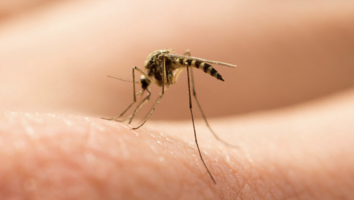Dog
Summer dangers for dogs
Summer means that we can be more out in nature with our dogs, especially as Covid-19 lockdown restrictions are lifting. But with the heat, the great outdoors, swimming and barbecues come a number of…
Worming your dog - Q&A
How do you know if your dog has worms? And when should you worm your dog? Dogs are at risk of being infected with many different worms, including roundworms, tapeworms and lungworm. They can pick…
7 things that are dangerous for your pet in the Autumn
Autumn is a wonderful season, both for humans and animals. Many people want to be out in the fresh air, but the bright days get shorter and it gets darker outside faster. Remember that unlit…
Can my dog eat a vegan or vegetarian diet?
Technically yes, dogs can survive on both a vegan or vegetarian diet. However, there are some important things to understand to ensure that your dog gets the right nutrition for their age, size and…
Feeding your dog or cat a raw food diet - What do you need to consider?
Are you thinking of feeding your dog a raw diet? Read our article to find out all you need to know about raw feeding your dog a raw meat-based diet to help you make an informed decision. Similar…
Heartworm disease in dogs
Heartworm is a parasite, which is transmitted by mosquitoes. Heartworm infection is much more common in dogs than cats, but it can cause serious illness and even death in both species. Preventative…
What are dog food allergies?
Everybody has heard of food allergies by now or knows people who have them. Dogs can also get food allergies, but they like to do them differently than people. Read on to learn how to recognise them.
Lungworm infection in dogs
Lungworm (Angiostrongylus vasorum) is a life-threatening disease of dogs. The number of cases in the UK over the last few years seems to be rising. Our vet explains what signs you should look out…
The power of hand feeding for training your dog
Hand feeding is the not-so-secret method used by many dog trainers that all dog owners should know about. It's the fastest way to build a bond with your dog to make all your training quicker, easier…
Common infectious causes of diarrhoea in dogs and puppies
There are many infectious causes of diarrhoea in dogs and puppies, and this is sometimes associated with other symptoms such as vomiting, lethargy and loss of appetite. A common step in the…
Megaoesophagus in dogs
Megaoesophagus is a condition where the muscular food pipe, which connects the throat to the stomach (the oesophagus), does not function normally. Food and saliva cannot move into the stomach, as…
Flatulence (farting) in dogs and cats
All animals produce gas in their gastrointestinal tract. It is normally expelled by the body either in the forms of farting from the bottom, or burping (eructation) from the mouth. Some flatulence…
EPI (Exocrine Pancreatic Insufficiency) in dogs and cats
Exocrine Pancreatic Insufficiency (EPI) is a condition which can affect both dogs and cats, but is more commonly seen in dogs. An insufficient amount of digestive enzymes are made in the gut. These…
Intestinal lymphangiectasia in dogs
The lymphatic system is a series of branching vessels, called lacteals, which carry lymph fluid around the body. Lymph fluid carries cells of the immune system and plays an important role in the…
I think my dog has ringworm. What should I do?
Ringworm is a type of fungal infection in the skin. Ringworm infection is caused by microscopic fungi (dermatophytes) feed on the keratin layers of the skin. The name ‘ringworm’ comes from the fact…
Canine seborrhoea: Why is my dog’s coat oily and smelly?
Canine seborrhoea or seborrhoeic dermatitis is a common skin condition that affects dogs and relates to the sebaceous glands in their skin. The sebaceous glands are associated with the hair…
Fox tapeworm infection in dogs
The fox tapeworm is a type of tapeworm found in Europe, but not in the UK. The tapeworm is found in America, central Asia, Japan and China. Its scientific name is Echinococcus multilocularis. This…
Why does my vet want a stool sample from my pet?
Has your vet asked for a poo (faecal) sample from your pet? Have you ever wondered what these samples can tell us? Our vet explains how to collect a suitable sample and what tests can be done to…























